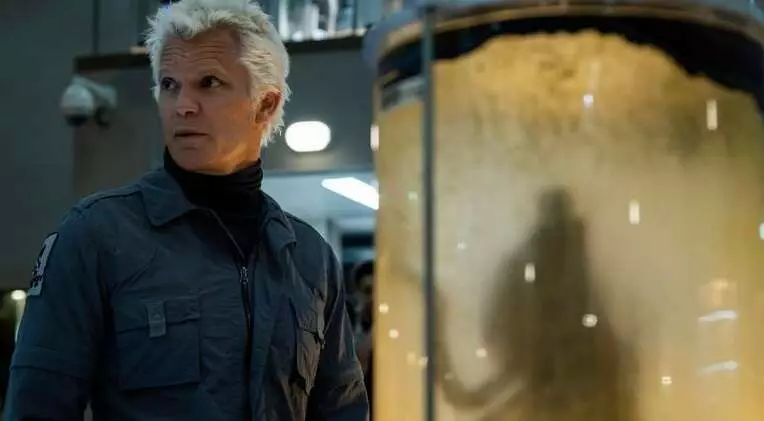The Alien franchise stands as a monument within science fiction and horror genres, yet it remains an enigma—a complex tapestry woven with varying tones, stories, and visual styles. With the upcoming FX series, the series faces an unprecedented opportunity to reinterpret its iconic creature for a new era. Far from merely continuing existing narratives, the challenge lies in capturing the franchise’s essence while offering fresh perspectives that resonate with contemporary audiences. This series should embrace the brutal, suspenseful roots of Ridley Scott’s original masterpiece while daring to expand the mythos in innovative directions.
Crucially, a successful reimagining demands reconsideration of the Alien myth that transcends mere monsters and jumpscares. It’s about tapping into humanity’s fears of the unknown, the corporate greed that fuels space exploration, and the existential dread of confronting the alien “Other.” If done thoughtfully, the series can transcend a typical sci-fi horror and evolve into a profound reflection of our own societal anxieties. The creators must balance honoring the lore’s past with bold storytelling that challenges preconceptions, inviting viewers into a richer, more layered universe.
The Pitfalls of Nostalgia Versus Evolution
A persistent challenge for franchise revivals is the tension between nostalgia and innovation. Numerous horror franchises have faltered when they attempt to replicate the original’s magic without understanding what made it special. The Alien franchise, in particular, has experienced this with its sequence of sequels and prequels, each differing significantly in tone and approach. Notably, director David Fincher’s “Alien 3” and Jean-Pierre Jeunet’s “Alien Resurrection” diverged in ways that divided fans—some appreciating their bold choices, others feeling alienated.
The new series must recognize that the franchise’s strength lies in its capacity for evolution, not stagnation. While it is tempting to bank on the familiarity of the Xenomorph and the familiar haunted-space setting, this risks relegating the series to a mere nostalgia act. Instead, the new creative direction should harness the franchise’s core themes—fear of the unknown, corporate dystopia, and survival—while exploring new narrative territories and visual aesthetics, even if it means deviating from the retro-futuristic style that Hawley prefers.
Redefining the Creature: From Mystery to Masterpiece
One of the most fascinating ambitions shared by showrunner Noah Hawley is to “re-mystify” the Xenomorph. For decades, audiences have been captivated yet confounded by the creature’s lifecycle, appearance, and the sheer brutality it embodies. Over time, the creature evolved from a mysterious alien to a well-established horror icon, but perhaps this has dulled some of its terrifying potential—not because the creature lost its potency, but because we believe we understand it.
The challenge, then, is to restore the creature’s mystique, to surprise audiences anew. Hawley’s emphasis on avoiding predictable horror tropes suggests a desire for innovative storytelling that keeps viewers guessing. This could mean delving deeper into the creature’s origins, revealing hidden aspects of its biology, or even questioning whether it is truly the ultimate predator or a symptom of a larger cosmic imbalance. A series that respects the creature’s terrifying ambiguity could reinvigorate its horror, making each encounter unpredictable and visceral.
Visual Aesthetics and Psychological Depth: Striking the Right Balance
Visual styling plays a crucial role in how the franchise is perceived. Hawley’s preference for retro-futurism underscores a desire for a gritty, tangible aesthetic that evokes the original film’s tense atmosphere. While technologically advanced prequels like “Prometheus” pushed the boundaries of CGI, they often sacrificed the claustrophobic realism that made the original so effective. The new series should, therefore, prioritize practical effects and atmospheric design, creating environments that feel lived-in, hostile, and immersive.
Moreover, surrounding the visceral horror with psychological depth is vital. The franchise’s best moments come when fear is intertwined with human vulnerability. The alien threat is not just a monster; it’s a mirror reflecting our primal fears and existential anxieties. The new series should explore characters’ psychological states, moral dilemmas, and the implications of confronting the unknown on a deeply personal level. This approach elevates the horror from spectacle to a meaningful exploration of human nature.
Final Reflections: A Unique Opportunity to Rewrite the Rules
The Alien franchise faces its most compelling chapter yet—not solely in its storyline but in its potential to redefine franchise storytelling altogether. With an eye toward innovation rooted in respect for the past, the upcoming series has the chance to challenge expectations and set a new standard for science fiction horror. Instead of merely appealing to nostalgic fans, it should aim to create a nuanced universe where the creature’s mystery remains intact, and its mythology expands in unpredictable, thought-provoking ways.
In an era where streaming and binge culture often favor superficial thrills, the franchise’s new direction should prioritize depth, atmosphere, and intellectual engagement. If it succeeds, it could not only honor the legacy of the original masterpiece but also elevate the Alien mythos into a more profound realm—one that continues to terrify and fascinate for decades to come.

